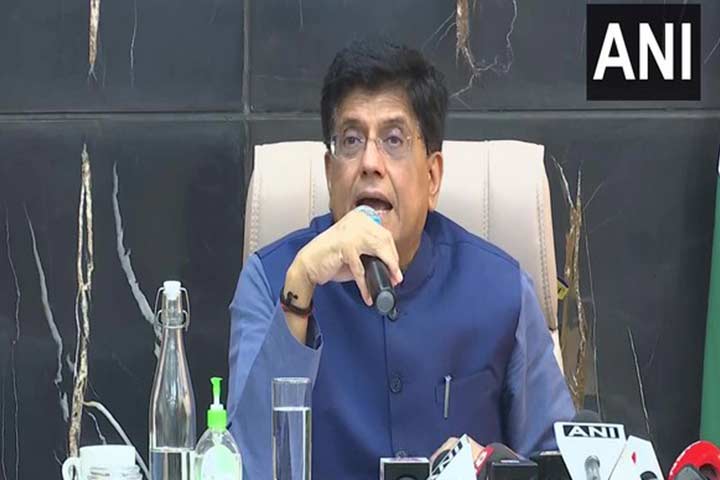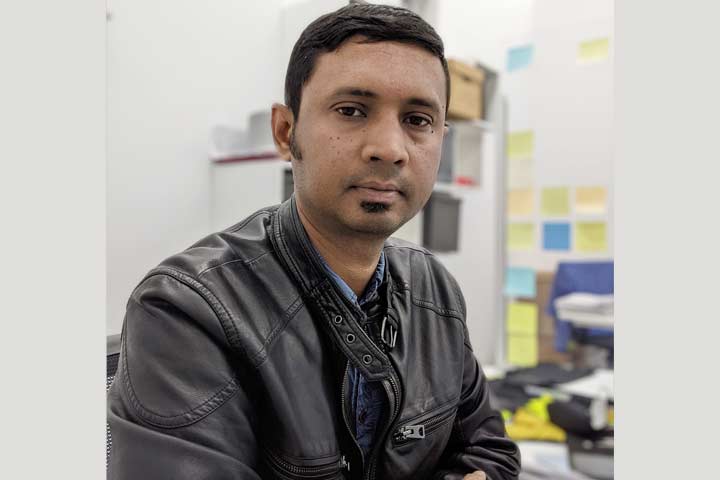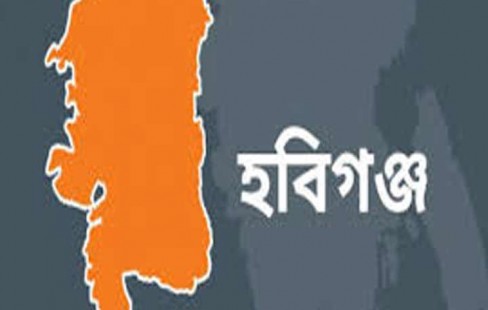4th IR is not a threat for Bangladesh textile industries: Maruf Khan
Maruf Khan is a mechanical Engineer working in Textile industry, more specifically in the field of flat knitting from 2007. Currently he is working as Senior Knitwear Engineer at Stoll Canada in Toronto. Recently he exchanged his experience and views with our Reporter Salim Malik.
Rtv: Why was the evolution of automation of knitting in Bangladesh important for the country?
Maruf Khan: Actually, the automation of the knitting industry in Bangladesh was “the demand of time” and definitely the knit industry handled the challenge very well. Automation is very important not only to increase the production capacity of a factory but also it offers full control over the production to shipment, which includes computerized and systematic production cycle, easy reproduction, minimizing wastage percentage, accurate production planning and implementation etc. All these factors are very crucial to gain the confidence of buyers. As a result Bangladesh is now the second largest knitwear manufacturer in the world and still moving forward.
Rtv: How is your experience with modern garments?
Maruf Khan: I am a Mechanical Engineer working in the textile industry, more specifically in the field of flat knitting from 2007. I worked in Bangladesh from 2007 to 2016 for STOLL Germany ( STOLL is the leading Computerized flat knitting machine manufacturer brand from Germany). During this time I observed and actively interacted with the complete switchover of Bangladesh flat knit industry to automated production system which resulted in Bangladesh as the 2nd largest knitwear manufacturer right after China. In 2016 I got the opportunity to work in the field of technical textile in USA. 2016-17 I worked for Stoll US in their New York office and in 2018 I was moved to Stoll Canada to work furthermore into Smart textile and till now I am working in Toronto as Senior Textile Engineer. From 2016 I am working mainly in the technical textile / functional textile field which include Smart textile, e-Textile, medical apparel, furniture, automobile etc, which is definitely a huge opportunity for me to explore the future of knitting.
Rtv: What is smart textile and what is your role in development and production of smart textile?
Maruf Khan: Smart textiles can be defined as textiles which have the abilities to sense and react to environmental conditions and external stimuli such as temperature, electrical properties, bio sensing properties etc. A complete smart textile solution consists of different components like textile, electrical elements, mechanical elements, software, hardware etc. However, as a Senior Knitwear Engineer, my main focus is to develop / create computer generated programs for computerized knitting machines to integrate different functional elements / sensors within the knitted fabrics. During the development and production process I also have to review, monitor and report on new product plans and recommend materials based on design objectives, such as strength, weight, heat resistance, electrical conductivity, and cost as well.
Rtv: The fourth industrial revolution is ahead. Is it the biggest challenge of this country? Will 4 million workers lose their jobs?
Maruf Khan: Yes, the Fourth Industrial Revolution is ahead (or the early phase has begun already). The advantages of Fourth Industrial Revolution are increased productivity, efficiency and quality in processes, greater safety for work, enhanced decision making with data-based tools, improved competitiveness by developing customized products that satisfy consumers' needs, etc. Considering these advantages, we can clearly say that Fourth Industrial Revolution is not a threat for Bangladesh textile industry but an opportunity to grow. With the growing productivity we can able to capture more share of the global market, which will result in creating more job opportunities for the industry. To support the upcoming situation we only need to prepare ourself by train our current manpower to achieve the required skill set.
Rtv: What kind of preparation is needed to face the challenge?
Maruf Khan: Accordingly to Britannica “The Fourth Industrial Revolution is therefore not a prediction of the future but a call to action,”. And we have to take the initiative now to prepare ourself for the revolution. To do so, we must ensure complete connectivity with Information Technology, very importantly invest more on education and training, increase acceptance of new technology and skill sets etc. Fourth Industrial Revolution will come with more productivity & more automation, at the same time it will come up with more product demand worldwide as well. We have to take the advantages to increase productivity by using technology and have to grab more of global market share by utilizing our skilled manpower.
(Maruf Khan started his textile career in 2007 at Stoll Bangladesh (former Tricotex Knitting Machinery Ltd) and worked till 2016. During this period, he experienced the complete transition of Bangladesh knitting industry from manual to fully computerized knitting. To support this huge industrial transition Maruf Khan was also actively involved in training for knitting programmers, machine technicians and operators as well. He earned a vast knowledge and expertise on high volume production and R&D for fashion garments in Bangladesh.
In 2016 Maruf Khan moved to Stoll America Knitting Machinery Inc, located at New York, USA and start exploring the field of Technical textile, which includes automobile, computing textile, medical apparel, bio sensing textile, furniture, compression garments, functional apparels, 3D knitting etc. During this time his main responsibilities was to provide knitting programming support to various clients, work on product development for technical applications, carry out update training programs for clients etc.
In 2018 Maruf was transferred to Stoll Canada to provide onsite support to Canada based clients.
Maruf Khan earned his Mechanical Engineering degree in 2004. In addition, he also earned EMBA in Operations Management in 2008.)
28 Sep 2022,21:28















 Live Tv
Live Tv






